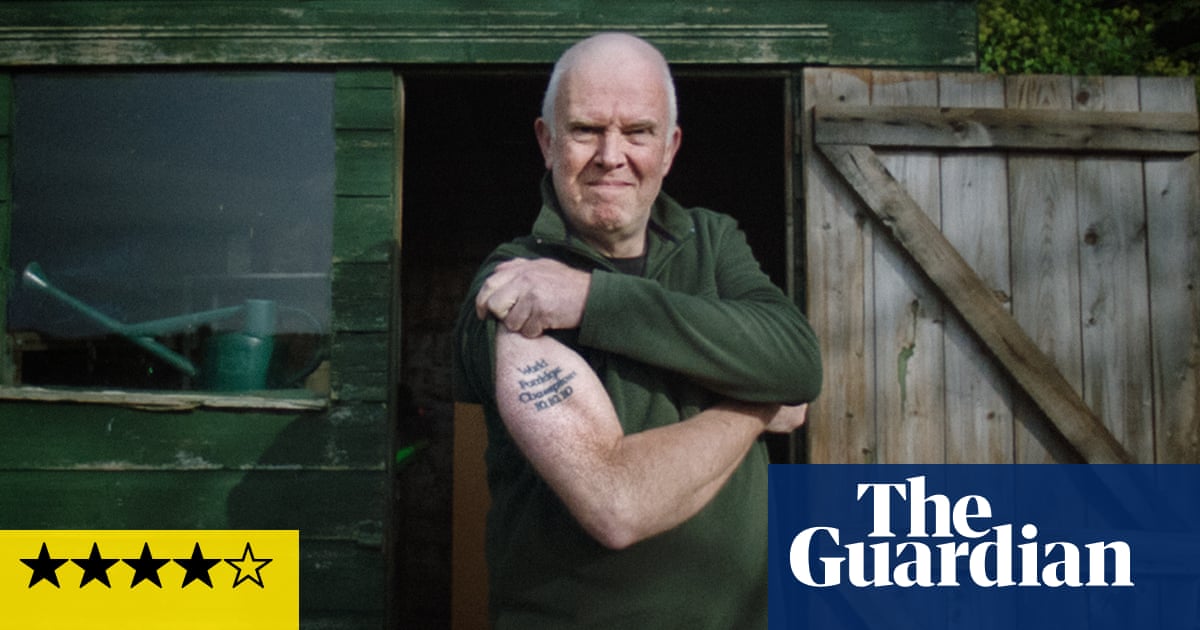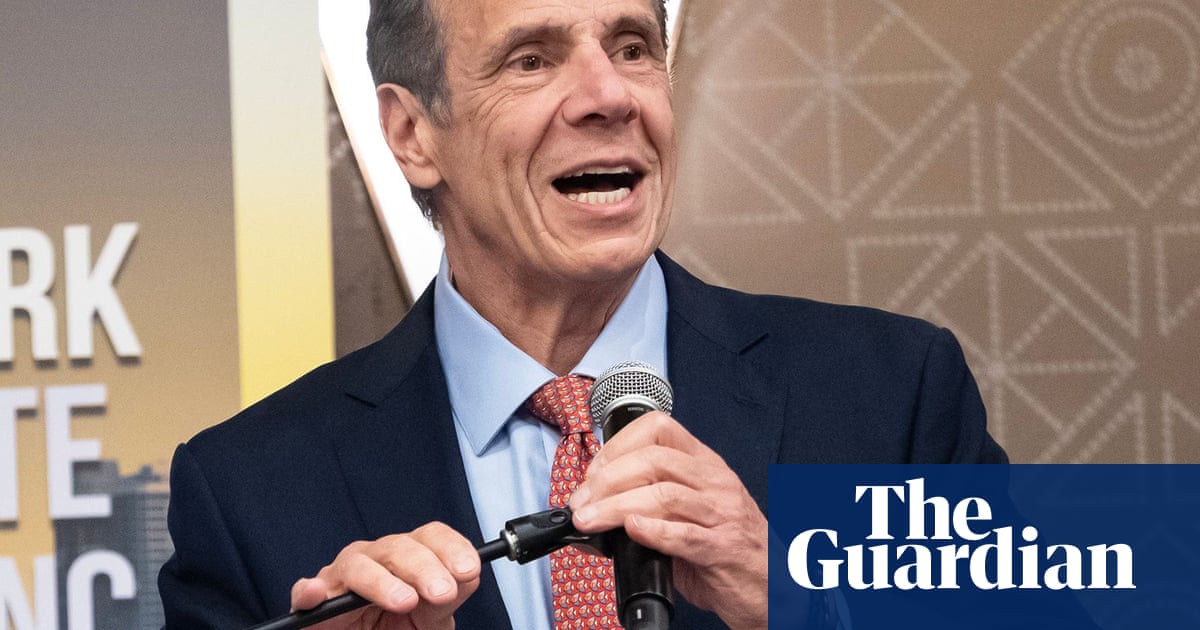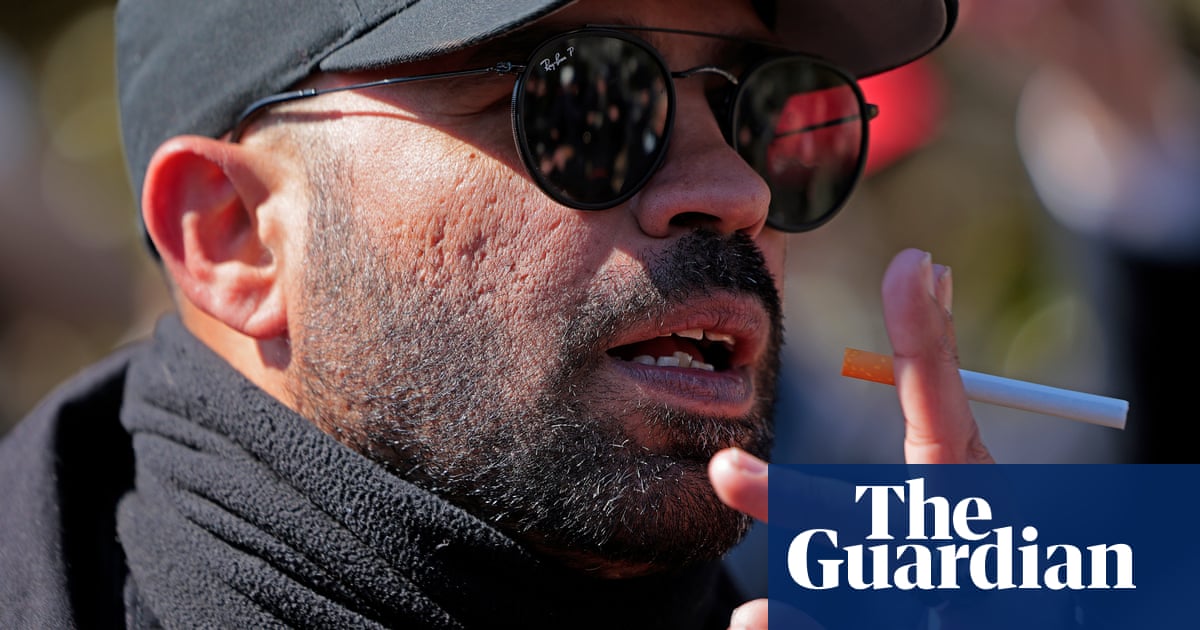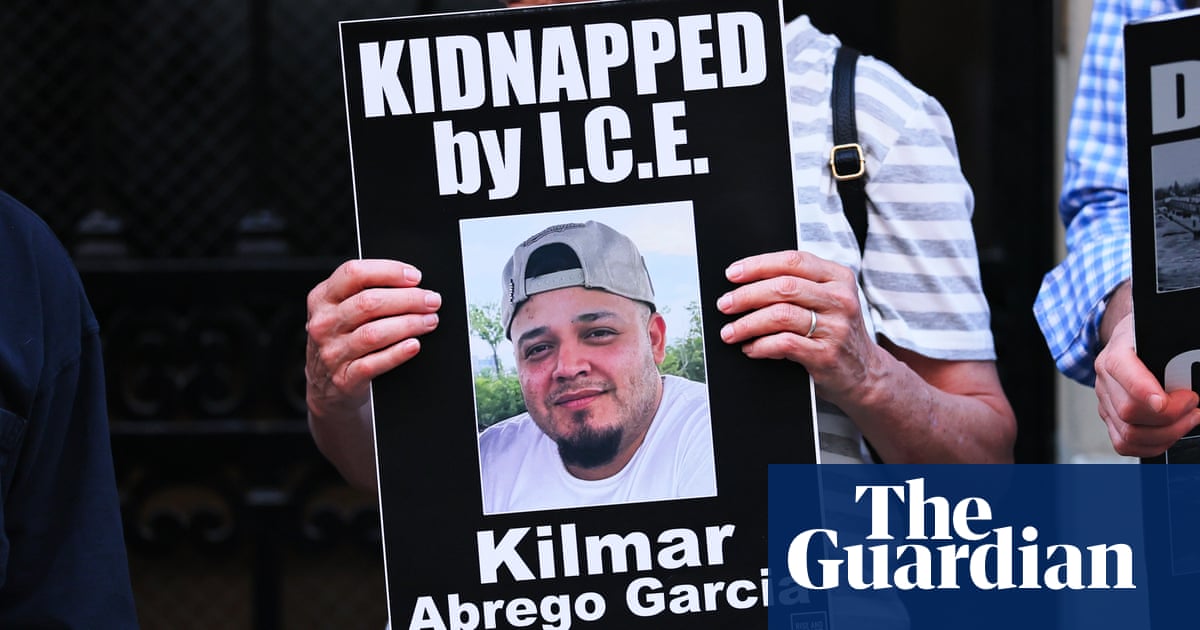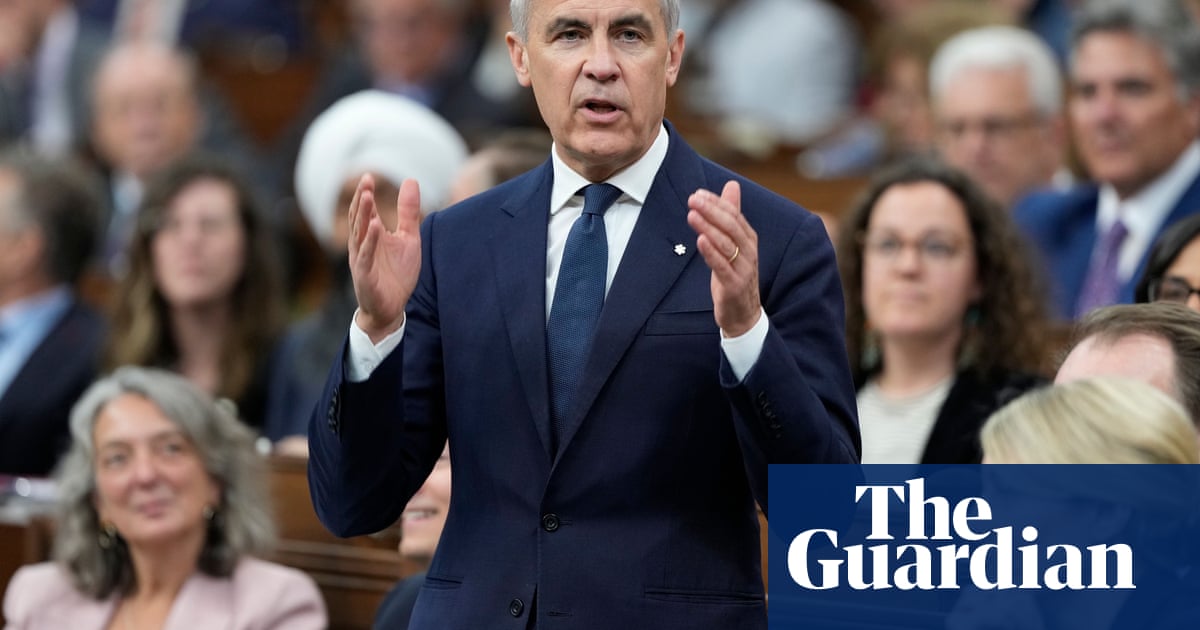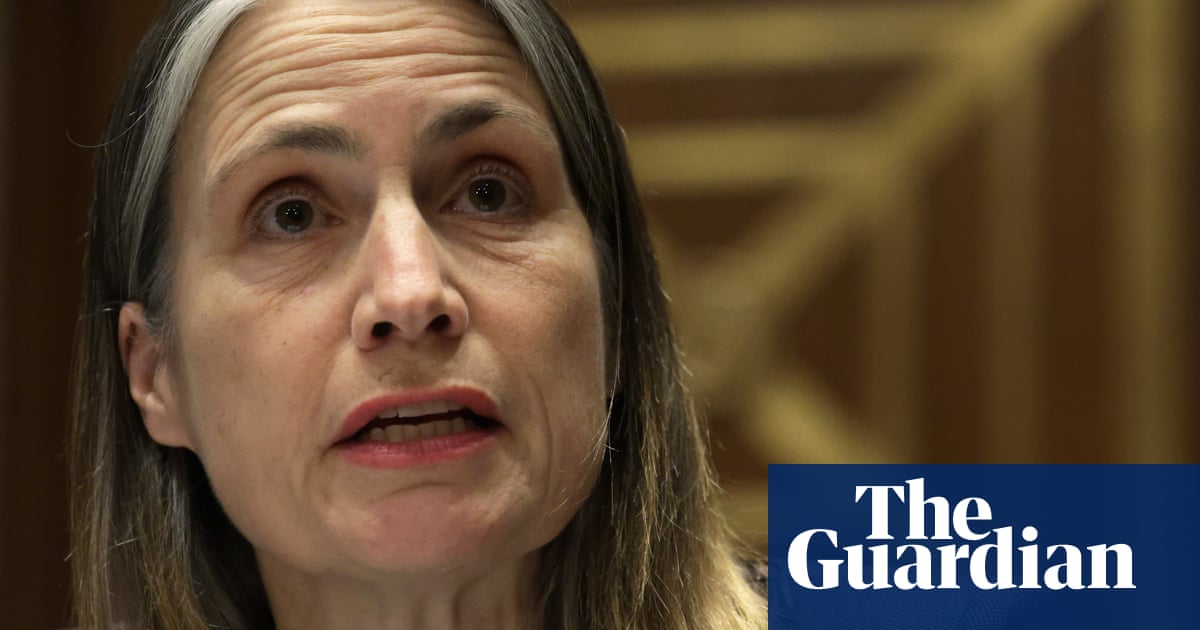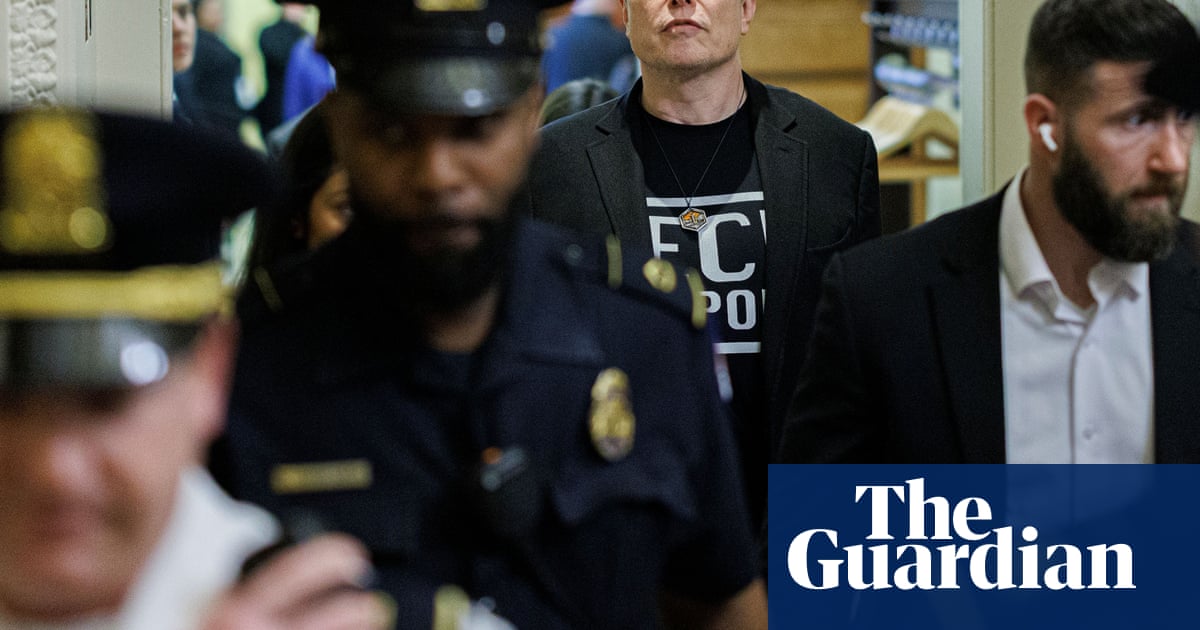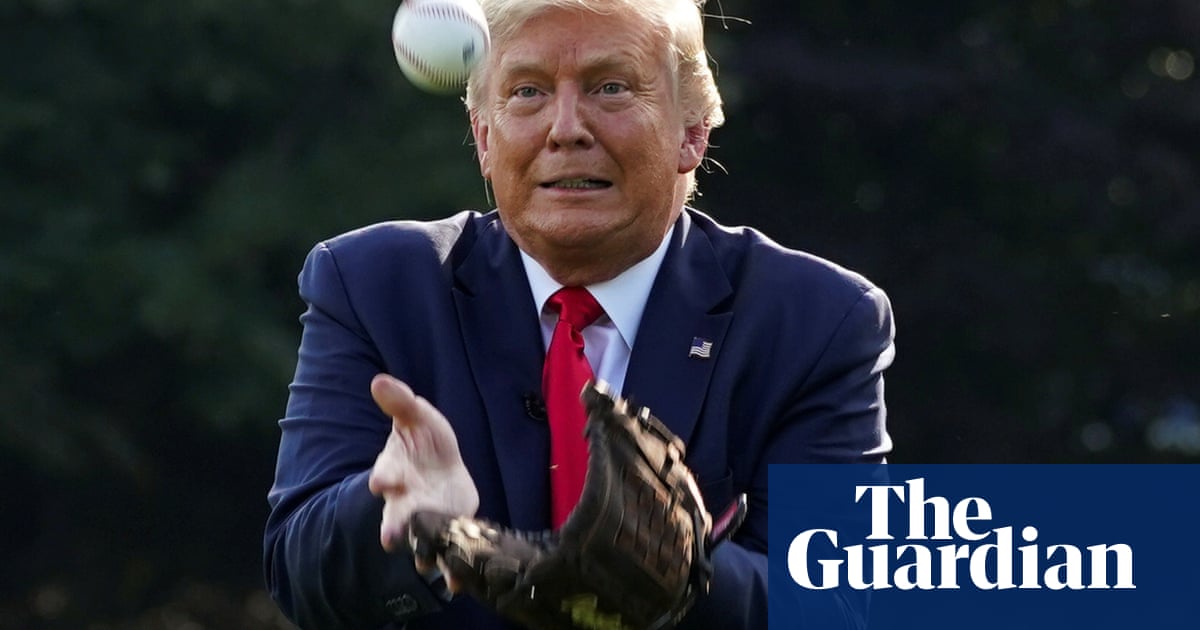It was unsurprising to those who know Vasyl Malyuk, the head of the Security Service of Ukraine (SBU), that his statement announcing the success of Operation Spiderweb had a certain physicality to it.
The audacious drone attacks on distant bases hosting Russia’s strategic bombers was “a serious slap in the face to Russia’s power”, said Malyuk, 42, a sometime boxer and weightlifter. “Our strikes will continue as long as Russia terrorises Ukrainians with missiles and Shahed drones.”
Shaven-headed and with the physique and bearing of a stereotypical nightclub bouncer, Malyuk has led the SBU since the former holder of the office Ivan Bakanov, a childhood friend of Volodymyr Zelenskyy, was fired in 2022 for apparent incompetence. Malyuk had been his deputy.
There have been high-profile successes over the last three years. One stunt – a photograph of Malyuk holding a bruised Dmitry Kozyura, the head of the SBU’s counter-intelligence, by the scruff of the neck at the time of his arrest on suspicion of being a Russian double agent – attracted the coverage for which it was designed.
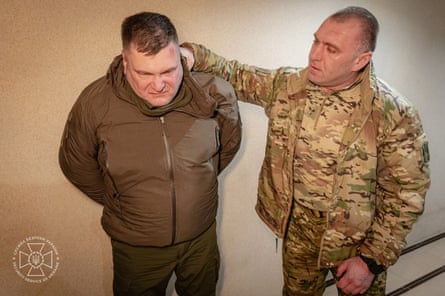
When Zakhar Prilepin, a Russian paramilitary leader, survived a suspected SBU sponsored assassination attempt, one of a series targeting Ukrainian foes at the time, Malyuk made headlines by commenting that Prilepin’s “pelvis and legs were severely injured, and, sorry, he lost his genitals”. “Therefore, it is God’s will that he continue to live and enjoy life”, he added drily.
Meanwhile, Sea Baby marine drones, the SBU’s own invention, are credited with striking 11 Russian military ships and pushing the Black Sea fleet “all the way to Novorossiysk”.
Though none of this compares to the global attention drawn by the 1 June attacks that were said to have been masterminded by Malyuk.
“I am confident that the SBU operations led by Vasyl Malyuk will be the subject of books and films,” said one SBU officer on condition of anonymity. “Because compared to what the security service is doing now, Hollywood is nervously smoking on the sidelines.”
The number of Russian aircraft permanently put out of action by the attack on four bases on Monday is disputed, with Ukraine claiming to have destroyed 41. US intelligence officials suggest that 10 combat aircraft were destroyed and up to 20 damaged.
Whatever the physical cost, the footage of the 117 drones flying out from the top of lorries to strike deep into Russia, and without the aid of western weaponry, has struck a psychological blow.
Ukraine’s foreign affairs minister, Sergiy Kyslytsya, claimed it had “changed the paradigm and dynamics” of the faltering peace talks with Russia in Istanbul on Tuesday. It was followed by a massive underwater blast targeting the key road and rail bridge connecting the Russian-occupied Crimean peninsula to Russia, damaging its supports.
The attacks were serious enough for Vladimir Putin to inform Donald Trump in a transatlantic call that he would “respond”. Four people in Kyiv were killed in the early hours of Friday morning after that vengeance was delivered in the form of a heavy barrage and drone attack on the capital.
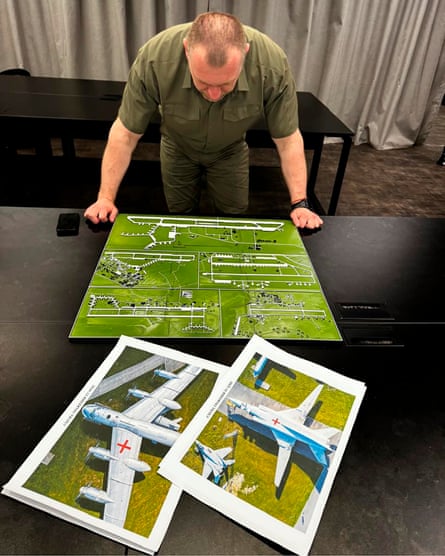
So who is the security chief who has got Putin’s attention?
“He’s a bulldog,” said one senior Ukrainian official who has worked closely with Malyuk. “He isn’t an intellectual, he doesn’t reflect, or hesitate. He is purposeful.”
“But he isn’t evil – that’s important,” the source added. “Often those heading these organisations are evil. Malyuk doesn’t want to hurt anyone but he knows that sometimes he has to.”
Malyuk was born in the city of Korostyshiv, 80 miles (130km) west of Kyiv, and it is said he was determined join the SBU after it emerged as an independent body from the KGB following the breakup of the Soviet Union. He enrolled at 17 and attended the SBU’s academy, finding friends most easily among those with a mutual appreciation of sport and exercise, and graduating with a degree in jurisprudence in 2005.
“He was very calm in his youth,” said a source who knew him then. “He was always physically very strong. He was constantly training in the gym. He believes that when a person goes in for sports, he is disciplined and organised. He used to box, they say he injured his arm at some stage.”
Unlike British or American domestic counter-intelligence, the SBU rolls up secret service operations with the sort of tasks that might fall to the police and special forces. Malyuk spent a large part of his career in anti-corruption and tackling organised crime. He rose to the position of deputy head of the SBU in his local city by 2019 which was when he first came across Zelenskyy, who was in the first months of his presidency.
“He got into a helicopter with Zelenskyy and began to show him all the violations in the Zhytomyr region,” said an SBU source. “He showed him where amber was being illegally mined. Zelenskyy was impressed and said: ‘I give Malyuk the authority to deal with these problems.’”
A few months before Russia launched its full-scale war, there was a brief sojourn into the world of politics when he was made a deputy to the interior minister, Denys Monastyrsky. Sources said he had never shown any ambition to have a political career, something that has recommended him to many in intelligence circles, and he swiftly rejoined the SBU after Russia’s invasion.
The organisation was in a sorry state. The head of the spy agency in the Kherson region had withdrawn his agents ahead of Russia’s occupation against Zelenskyy’s orders.
Bakanov, in what would turn out to be one of his last acts as chief, had enrolled his son in the service so ensuring he would avoid mobilisation. Russian agents were widely regarded to have penetrated the organisation. Malyuk is said to have set as a priority the task of turning out the moles.
“One of the good signs of Operation Spiderweb is that it didn’t leak,” said one senior member of Ukraine’s security. “He has got rid of a lot of traitors. Not every one of them, as that’s not possible. But a lot.”
Malyuk also personally took an interest in the so-called Alpha unit within the SBU that carries out operations on and behind the frontline, to which he is a regular visitor.
According to the service, since February the SBU has been responsible for destroying nearly 2,000 tanks, more than 3,000 armoured vehicles and host of aircraft, rocket launch systems and military facilities, including ammunition depots, as well as over 30 oil refineries.
It is widely accepted that Malyuk himself would not have dreamed up Operation Spiderweb but he had the ability to see the potential and have the ear of the president.
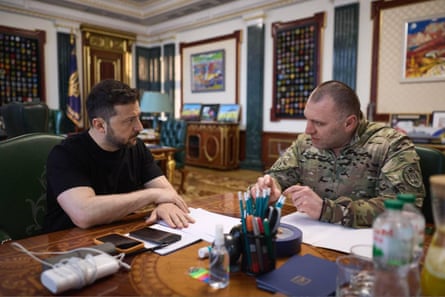
“This idea was born deep inside the security services,” said Ivan Stupak, who was an SBU agent between 2004 and 2015. “And this idea went directly to Mr Malyuk. He liked this idea. And there was one more obstacle, President Zelenskyy. There was high chance that Mr Zelenskyy would will reject this idea but Mr Malyuk convinced Mr Zelenskyy.”
Yuri Butusov, a military journalist, said Malyuk had also enabled the operation by disregarding hierarchy and pushing forward young agents and risk-takers. Unlike some at the top of government, his focus was on winning the war rather than factional disputes within the administration, he suggested.
“Malyuk has given the freedom of action and resources to promote very decisive, very responsible leaders, some of them very young people,” Butusov said. “They are risk-takers. He is very different to other people in power. He sets aside political influence, economic and business interests.”
Sources inside the government said they did not believe it was Malyuk’s decision to publicise the operations to this extent. “Zelenskyy is all about media attention, he eats and drinks it,” said one government source.
Malyuk, in contrast, is said to keep his comments to the point when briefing ministers and expects a similar lack of verbosity from those within his service.
Sources said the power and success had yet to go to Malyuk’s head. “If he sees problems in the heads of departments, he becomes tough,” said a second SBU officer. “But in general, he is constructive. He gives his subordinates the time he thinks they need to complete their tasks. It’s easier to govern when you have carte blanche. But you still need to earn carte blanche. And Malyuk earned this carte blanche.”

 13 hours ago
4
13 hours ago
4

